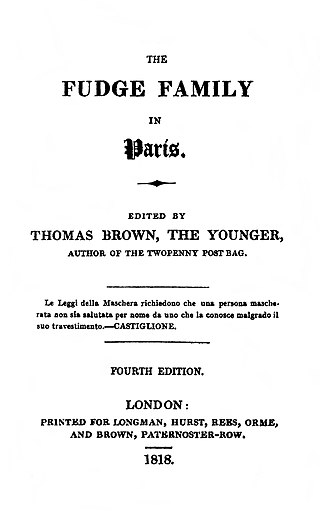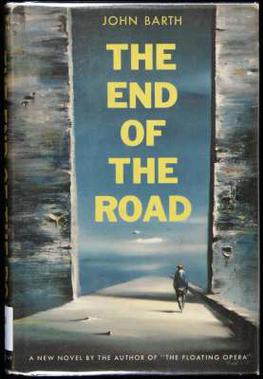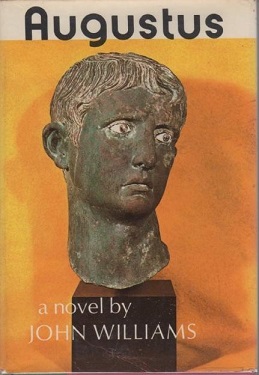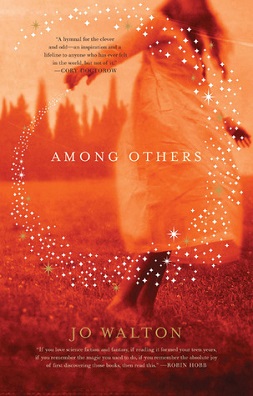
An epistolary novel is a novel written as a series of letters. The term is often extended to cover novels that intersperse documents of other kinds with the letters, most commonly diary entries and newspaper clippings, and sometimes considered to include novels composed of documents even if they don't include letters at all. More recently, epistolaries may include electronic documents such as recordings and radio, blog posts, and e-mails. The word epistolary is derived from Latin from the Greek word ἐπιστολή epistolē, meaning a letter. In German, this type of novel is known as a Briefroman.

A letter is a written message conveyed from one person to another through a medium. Something epistolary means that it is a form of letter writing. The term usually excludes written material intended to be read in its original form by large numbers of people, such as newspapers and placards, although even these may include material in the form of an "open letter". The typical form of a letter for many centuries, and the archetypal concept even today, is a sheet of paper that is sent to a correspondent through a postal system. A letter can be formal or informal, depending on its audience and purpose. Besides being a means of communication and a store of information, letter writing has played a role in the reproduction of writing as an art throughout history. Letters have been sent since antiquity and are mentioned in the Iliad. Historians Herodotus and Thucydides mention and use letters in their writings.

An epistle is a writing directed or sent to a person or group of people, usually an elegant and formal didactic letter. The epistle genre of letter-writing was common in ancient Egypt as part of the scribal-school writing curriculum. The letters in the New Testament from Apostles to Christians are usually referred to as epistles. Those traditionally attributed to Paul are known as Pauline epistles and the others as catholic epistles.

John Simmons Barth is an American writer who is best known for his postmodern and metafictional fiction. His most highly regarded and influential works were published in the 1960s, and include The Sot-Weed Factor, a satirical retelling of Maryland's colonial history, and Lost in the Funhouse, a self-referential and experimental collection of short stories. Though Barth's work has been controversial among critics and readers, he was co-recipient of the National Book Award in 1973 for his novel Chimera with John Williams for Augustus. Despite Barth's influence on postmodern literature in America, his influence and publicity have decreased since his novels were published.

Les Liaisons dangereuses is a French epistolary novel by Pierre Choderlos de Laclos, first published in four volumes by Durand Neveu from March 23, 1782.

Giles Goat-Boy (1966) is the fourth novel by American writer John Barth. It is a metafictional comic novel in which the universe is portrayed as a university campus in an elaborate allegory of both the hero's journey and the Cold War. Its title character is a human boy raised as a goat, who comes to believe he is the Grand Tutor, the predicted Messiah. The book was a surprise bestseller for the previously obscure Barth, and in the 1960s had a cult status. It marks Barth's leap into American postmodern fabulism.
A book series is a sequence of books having certain characteristics in common that are formally identified together as a group. Book series can be organized in different ways, such as written by the same author, or marketed as a group by their publisher.
Letter, letters, or literature may refer to:

Lost in the Funhouse (1968) is a short story collection by American author John Barth. The postmodern stories are extremely self-conscious and self-reflexive and are considered to exemplify metafiction.

The Fudge Family in Paris is an 1818 verse satire by Thomas Moore. It was intended to be a comedic critique of the post-war settlement of Europe following the Congress of Vienna and of the large number of British and Irish families who flocked to France for tourism. Written after a brief trip to Paris, its popular success inspired several more parodies and replies.

The End of the Road is the second novel by American writer John Barth, published first in 1958, and then in a revised edition in 1967. The irony-laden black comedy's protagonist Jacob Horner suffers from a nihilistic paralysis he calls "cosmopsis"—an inability to choose a course of action from all possibilities. As part of a schedule of unorthodox therapies, Horner's nameless Doctor has him take a teaching job at a local teachers' college. There Horner befriends the super-rational Joe Morgan and his wife Rennie. The trio become entangled in a love triangle, with tragic results. The story deals with issues controversial at the time, such as sexuality, racial segregation, and abortion.

Pamela; or, Virtue Rewarded is an epistolary novel first published in 1740 by English writer Samuel Richardson. Considered one of the first true English novels, it serves as Richardson's version of conduct literature about marriage. Pamela tells the story of a fifteen-year-old maidservant named Pamela Andrews, whose employer, Mr. B, a wealthy landowner, makes unwanted and inappropriate advances towards her after the death of his mother. Pamela strives to reconcile her strong religious training with her desire for the approval of her employer in a series of letters and, later in the novel, journal entries all addressed to her impoverished parents. After various unsuccessful attempts at seduction, a series of sexual assaults, and an extended period of kidnapping, the rakish Mr. B eventually reforms and makes Pamela a sincere proposal of marriage. In the novel's second part Pamela marries Mr. B and tries to acclimatise to her new position in upper-class society. The full title, Pamela; or, Virtue Rewarded, makes plain Richardson's moral purpose. A best-seller of its time, Pamela was widely read but was also criticised for its perceived licentiousness and disregard for class barriers. Furthermore, Pamela was an early commentary on domestic violence and brought into question the dynamic line between male aggression and a contemporary view of love. Moreover, Pamela, despite the controversies, was able to shed light on social issues that transcended the novel for the time such as gender roles, early false-imprisonment, and class barriers present in the eighteenth century. The action of the novel is told through letters and journal entries from Pamela to her parents. Richardson highlights a theme of naivety, illustrated through the eyes of Pamela. Richardson paints Pamela herself as innocent and meek to further contribute to the theme of her being short-sighted to emphasize the ideas of childhood innocence and naivety.

P.S. Longer Letter Later is an epistolary novel written by Paula Danziger and Ann M. Martin in 1998. It is a novel in letters and is written as a year-long correspondence between two twelve-year-old girls, Tara and Elizabeth. The novel was followed by a sequel, Snail Mail No More.
The death of the novel is the common name for the theoretical discussion of the declining importance of the novel as literary form. Many 20th century authors entered into the debate, often sharing their ideas in their own fiction and non-fiction writings.

The Late George Apley is a 1937 novel by John Phillips Marquand. It is a satire of Boston's upper class in the late 19th and early 20th centuries. The title character is a Harvard-educated WASP living on Beacon Hill in downtown Boston. The book is an epistolary novel, made up mostly of letters to and from the title character. It's subtitled "A Novel in the Form of a Memoir", because the letters and other personal documents are quoted by another character, Apley's biographer.
Duncan Fallowell is an English novelist, travel writer, memoirist, journalist and critic.

Augustus is an epistolary, historical fiction by John Williams published by Viking Press in 1972. It tells the story of Augustus, emperor of Rome, from his youth through old age.[1] The book is divided into two parts, the beginning chronicling his rise to power, the latter describing his rule thereafter, and the familial problems faced choosing a successor. Williams and Augustus shared the 1973 U.S. National Book Award for Fiction with John Barth and Chimera, the first time the award was split, and the only one of Williams's four novels to receive significant acclaim within his lifetime.

The Miernik Dossier, published by the Saturday Review Press in 1973, was the first of seven novels by the American novelist Charles McCarry featuring an American intelligence agent named Paul Christopher. Set in 1959 in Europe and Africa during the days of the Cold War, it is narrated in the form of reports, overheard conversations, and various documents from a multitude of sources of different nationalities, supposedly giving the reader an authentic picture of what an actual intelligence operation might be like. McCarry had previously been an undercover operative for the Central Intelligence Agency for nine years, and the book was hailed for its apparent authenticity and realistic depiction of tradecraft. It received excellent reviews, and instantly established McCarry's reputation as one of the foremost American novelists of espionage. Later books by McCarry, nine more in all, expanded from focusing solely on Christopher into what might be considered a chronicle of the Christopher universe: two novels feature his cousins, the Hubbards, and in many of the other Christopher novels his father, mother, one-time wife, and daughter play important and recurring roles. Also in this universe is a 1988 historical novel, The Bride of the Wilderness, about Christopher's ancestors in 17th-century England, France, and Massachusetts. Like all of McCarry's books, this one displays "an almost Jamesian awareness of [its] European locale, the special authenticity of a loving expatriate writing of an adopted foreign land."

The Floating Opera is a novel by American writer John Barth, first published in 1956 and significantly revised in 1967. Barth's first published work, the existentialist and nihilist story is a first-person account of a day when protagonist Todd Andrews contemplates suicide.

Among Others is a 2011 fantasy novel written by Welsh-Canadian writer Jo Walton, published originally by Tor Books. It is published in the UK by Corsair. It won the 2012 Nebula Award for Best Novel, the Hugo Award for Best Novel and the British Fantasy Award, and was a nominee for the World Fantasy Award for Best Novel.













